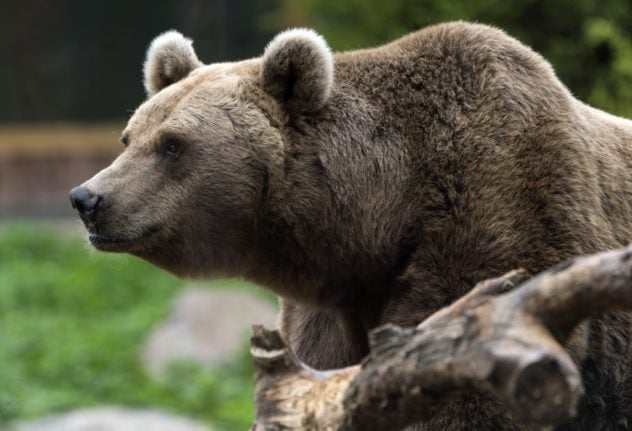Tensions over the presence of brown bears in mountains separating France and Spain have run high since a re-introduction effort was launched in the mid-1990s.
Farmers were furious when the government stepped up its efforts with a 10-year “bear plan” in 2018, mounting fierce protests when the first female was brought in by helicopter that year.
They say the warning shots are needed to keep the predators from killing sheep and other livestock or destroying bee hives, and authorities began allowing them on a trial basis in 2019.
But the State Council, the country's top administrative court, struck down the measure after around a dozen pro-bear associations filed a complaint.
Le Conseil d’État a annulé la possibilité de recourir à des tirs d'effrouchement sur les ours bruns dans les Pyrénées, estimant qu’ils portaient atteinte à la survie de cette espèce menacée. ?
Une décision salutaire pour la cinquantaine d'ours restants !https://t.co/VztzGfhuFa
— Annika Bruna (@Bruna_Annika) February 6, 2021
Une dizaine d'associations mettent « en demeure @barbarapompili et @EmmanuelMacron de remplacer » les trois #ours tués en 2020, menaçant de saisir le tribunal administratif « à défaut de réponse rapide » #Pyrénéées @PaysDelOurs @OursLoupLynx @FNEasso @Le_Museum @LeJDLE https://t.co/ABpnOUrdY8
— Stephane Thepot (@canardumidi) January 25, 2021
It said warning shots are not compatible with “maintaining the populations in their natural environment.”
Contacted by AFP, the environment ministry did not immediately comment.
In a joint statement, the associations welcomed the ruling, saying the decree “made it possible to get around the ban on intentionally disturbing a protected species.”
Three bears were killed in the Pyrenees last year, including one by a hunter who said he acted in self-defence.
In January, the European Commission called on France to rapidly carry out new re-introductions to replace them, as called for in its “bear plan.”
Nouvelle info à venir : La Commission européenne demande à la France et à l'Espagne a minima de remplacer les ours tués en 2020 …
— Pays de l'Ours (@PaysDelOurs) January 27, 2021



 Please whitelist us to continue reading.
Please whitelist us to continue reading.
Yet another law then that doesn’t affect the people that made it. So how is one suppose to move the bears on, shout boo or use an air horn and get fined for making a noise.